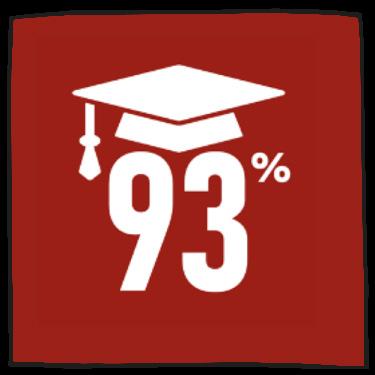Beyond the statistics of state school representation change. The logic that increasing state-school admissions each year will help to change the nature of the university’s image is legitimate. Fewer privately educated students will lead to less of the privately educated individuals who reinforce the Oxford stereotype. The concern is that this is not a wholly sufficient way to transform the actual university experience of state-school students at Oxford. Firstly, it would be a surprise if Oxford continues to make such large leaps in state-school intake to a point where admissions reflect the nationwide split between state and independently educated students. Privately educated students are just too valuable when protecting the academic reputation of the university. From a cynical perspective, it makes sense that the university disproportionately favours privately educated students when carrying out the admissions process. Their grades are usually preferable, they have received closer attention in smaller classrooms, and possess the ‘cultural capital’ that comes with their schooling. But that is to be expected when £100k is dropped on your education. We cannot then rely on the assumption that private schools will eventually be phased out of the university’s admissions. It would also be foolish to conclude that the over-representation of privately educated students in admissions alone is the key factor behind state educated students receiving a diminished experience of university life. For a while now, the majority of Oxford’s students have been state educated. Shouldn’t this imply that they are more confident in their surroundings? Not necessarily. A quick observation of student life would reveal that the more dominant student societies, from the Union to the various publications, are dominated by privately educated students throughout. The same can be said for many of the sports teams. Even at prelims, the only exams that most students will do before
look left MT20
Oxford’s efforts to bridge the divide between state school attendance and admission to the university have firmly accelerated over the past few years. Of the undergraduates commencing their studies this academic year, 68% were from a state educated background, compared to 62% in the previous year (1). In fact, this figure is up 13% since 2015 (2). To the egalitarian mind, this is a refreshing signal that your opportunity should not be stunted by the wealth of your family, or the environment you have been raised in. Whilst I welcome these figures as a step in the right direction, I do not believe that they tell the full story behind the state-schoolers experience and may in some instances harm those who have gone through the state system. The university, for obvious reasons, still carries a reputation of arrogance and ostentation among many in the media, politics, and the country at large. An institution’s image can be difficult to redefine, especially for universities like Oxford that are under constant scrutiny when student scandals occur (and rightly so). State school students can easily be put off by this, thinking that this is the prevailing culture of the university, something quite different and rather unpleasant compared to their experience at school. There is also the academic aspect. Oxford is an elite academic institution, ranking top of world university rankings (3). This is something that the university should be proud of, but it should not act as a barrier against state educated students. Many find that once they arrive at Oxford, a persistent imposter syndrome can make their learning experience more difficult than students who went through the private system. From the university’s perspective, the shift in schooltype admissions is a strong signal that they are aiming to change this perception. Other projects such as Opportunity Oxford and Foundation Oxford, both substantive attempts at shaking off the elitist shadow are strong moves by the university to show real
33
Lucas Davison, PPE at Lady Margaret Hall. All opinions here are Lucas’, the 93% club is apolitical








